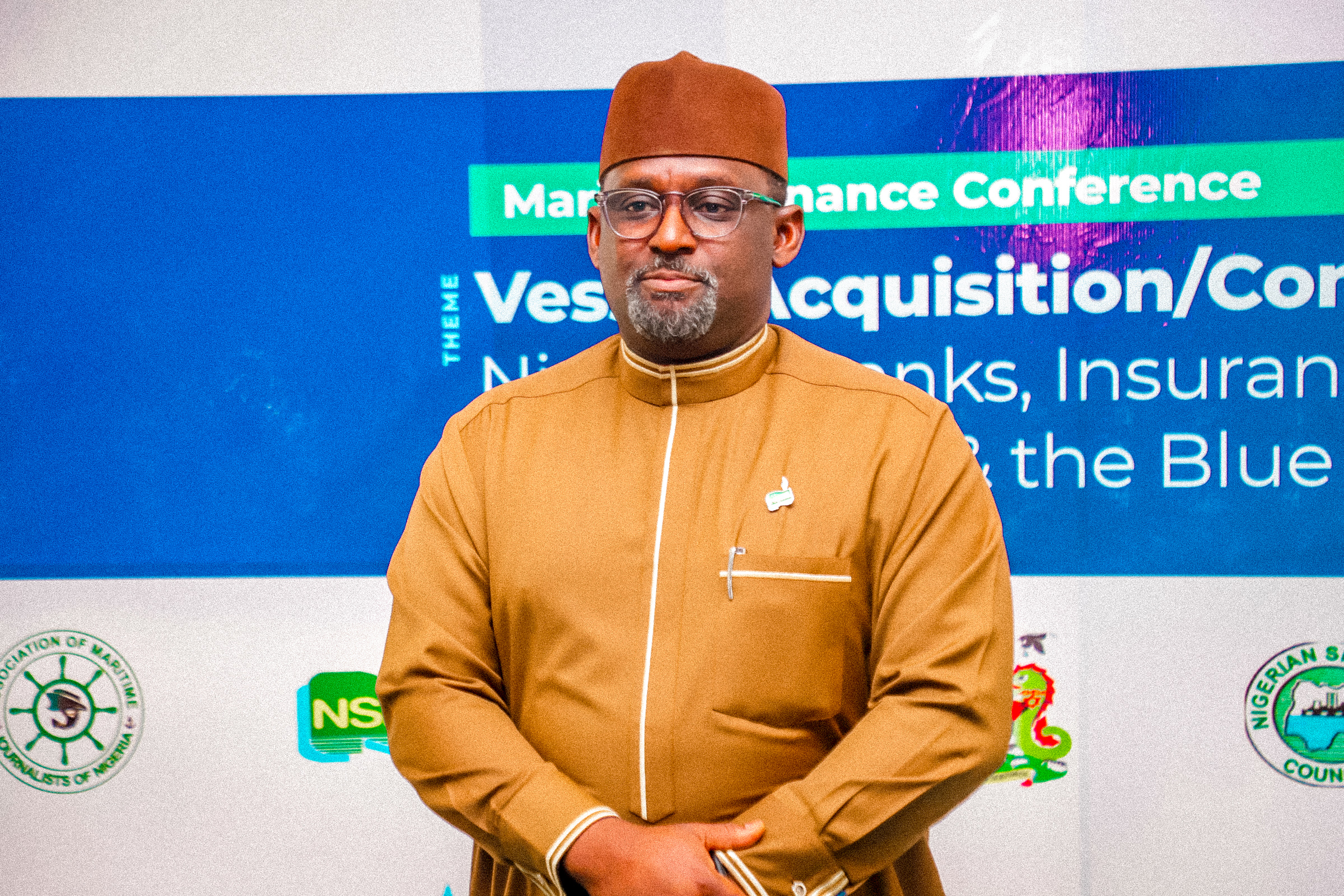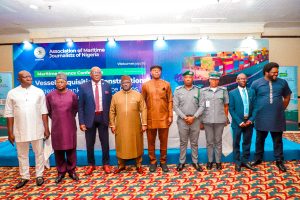Global Ship Financing By Local, International Banks Hits $600 Billion In 2023
‘IMO’s SOLAS, MARPOL Conventions Are Core Pillars In Maritime Operations’

By Edu Abade
In what is indicative of an increasingly booming shipping industry, total lending for the ownership, acquisition and construction of ships by local and international banks amounted to about $600 billion globally as of 2023, industry experts have revealed.
The experts stated that the amount is huge and significant and underscores the key roles of banks, insurance companies and other financial institutions in the acquisition, construction and operations of vessels globally.
 Specifically, Managing Director and Chief Executive Officer (MD/CEO) of a subsidiary of the Nigeria Liquefied Natural Gas (NLNG) Shipping and Marine Services Limited (NSML), Abdulkadir K. Ahmed, stated this, yesterday, at the Association of Maritime Journalists of Nigeria’s (AMJON) Maritime Finance Conference in Lagos.
Specifically, Managing Director and Chief Executive Officer (MD/CEO) of a subsidiary of the Nigeria Liquefied Natural Gas (NLNG) Shipping and Marine Services Limited (NSML), Abdulkadir K. Ahmed, stated this, yesterday, at the Association of Maritime Journalists of Nigeria’s (AMJON) Maritime Finance Conference in Lagos.
Ahmed, who spoke at the conference with the theme: Vessel Acquisition, Construction: Nigerian Banks, Insurance Firms, Government and the Blue Economy, said with increasing focus on deepening the contribution of marine and blue economy’s contribution to economic growth, the role of finance and insurance in the maritime industry could not be overemphasized.
Stressing NSML’s vision in supporting the growth and development of the Nigerian maritime industry, he maintained that finance and insurance remain critical to the growth and development of the maritime sector, especially with regard to how they impact vessel acquisition and construction (newbuild) activities.
His words: “Vessel ownership and acquisition occurs within 2 segments of the shipping industry-The Sales and Purchase segment where second-hand vessels are traded and acquired and the Newbuilding market where newbuild vessels are constructed from scratch.
“Irrespective of the market owners play in, the importance and role of finance cannot be overemphasised.”
Citing a Petrofin Index for Global Ship Finance, Ahmed pointed out that the top 40 banks lending to shipping in 2023 amounted to $284.27 billion, while the total global bank lending of all banks, including local banks, approached $375 billion in 2023.
“While a cautious and indicative figure for global ship finance, including all forms of lending-leasing, export finance and alternative providers-is approximately $600 billion.
“These amounts are huge and significant and underscore the key roles of financial institutions including insurance institutions in the acquisition, construction and operations of vessels globally,” he stated.
He explained that while engagements at the conference focus on financing and insurance in the vessel acquisition and construction process, which are undeniably critical components in the maritime industry, it was imperative to equally examine the indispensable roles of regulations, standards and competence in the multifaceted process.
“These elements form an integral part of the ship or vessel acquisition process. The shipping and maritime industry is a highly regulated one with great emphasis on safety, reliability and environmental sustainability.
“Compliance with conventions, regulations and guidelines are primarily issued by the International Maritime Organisation (IMO). IMO’s Safety of Life at Sea (SOLAS) convention, Maritime Pollution (MARPOL) convention are some of the core pillars of operations in the global maritime industry.
“With the drive for decarbonization and emphasis on the need to reduce greenhouse gas (GHG) emissions, to combat the threats posed by climate change, there are a plethora of new rules and regulations owners need to be aware of when acquiring vessels.
“The landscape of maritime regulations, and by extension the standards, is becoming more and more stringent with resultant impact on design and operations of both new and existing assets,” he said.
On environment, social and governance (ESG), Ahmed noted that from a financing perspective, major financiers and insurance companies of ships globally have signed the Poseidon Principles which is a global framework for integrating climate considerations into lending decisions to promote international shipping’s decarbonization.
Maintaining that the principles are consistent with the policies and ambitions of the IMO to reach net zero emissions in the maritime industry by 2050 compared to 2008 levels, he disclosed that over 34 financial institutions have signed the Poseidon Principles, representing a bank loan portfolio of global shipping of 80 percent of the global ship finance portfolio.
Signatories commit to implementing the Poseidon Principles in their internal policies, procedures and standards, as well as work in partnership with their clients and partners on an ongoing basis to implement the Poseidon Principles.
“The Poseidon Principles for Marine Insurance recognize the role insurers play in the shipping industry and promote responsible environmental stewardship throughout the maritime value chain.
These principles enable insurers to assess and disclose their portfolios with responsible environmental impacts and incentivize international shipping’s decarbonization-aimed at supporting a better future for the shipping industry and the society.
“It is, therefore, incumbent on Nigerian ship owners to understand how the drive for decarbonization and net zero emission objectives impact ship finance and insurance in the maritime industry,” he added.









